In Part 5c of this series on revelation we will closely examine the revelation given to Joseph Smith known as the Word of Wisdom. If you have not read Part 1 of this series, I highly recommend that you do so before reading this post (you can read it here). And if you haven’t read Part 5a, or 5b click here for 5a and click here for 5b. We recommend you read it before you continue. The point of the posts in the revelation series is to show how culture, bias, and worldview affect the way revelation or inspiration is interpreted.
The Word of Wisdom and its eventual enforcement evolved slowly. The following is a timeline to highlight some key events of the evolution from inception to present:
February 1, 1833 – The Temperance Society succeeded in eliminating a distillery in Kirtland.
February 27, 1833 – The Word of Wisdom was revealed to Joseph Smith.
1834 – The church council in Kirtland adopted a resolution: “No official member in this Church is worthy to hold an office, after having the Word of Wisdom properly taught him, and he, the official member, neglecting to comply with it or obey it…” (BYU Studies, Arrington, An Economic Interpretation of the WoW, p. 40).
1836 – The church congregation voted for total abstinence from intoxicants after which water instead of wine was used in the Lord’s Supper. (BYU Studies, Arrington, An Economic Interpretation of the WoW, p. 40). In my opinion, I think this was more of a vote to be frugal – to sacrifice excesses like wine and tobacco in order to make more funds available for building the kingdom. I am of this opinion because as you will see, no one obeyed the Word of Wisdom (at least not for many, many years). Click here to see part 5a of this series for more detail of how the Word of Wisdom was used to cut out excess.
1837 – “At a general meeting conducted by church authorities in far West Missouri in 1837 the membership agreed that we will not fellowship any ordained member who will not or does not observe the word of wisdom according to its literal reading. Several months later at the annual conference of the church Joseph Smith spoke on the Word of Wisdom and stated that it should be observed.” (BYU Studies, Arrington, An Economic Interpretation of the WoW, p. 40).
But even with these votes and rules, no one really kept the Word of Wisdom. Even Joseph Smith wasn’t a strict observer as he drank tea, beer, and wine. (Diary of Joseph Smith, March 11, 1843, Milennial Star, vol 23, no 45 p 720, History of the Church vol. 2, 369). Joseph wrote in his published journal, “We then partook of some refreshments, and our hearts were made glad with the fruit of the vine. This is according to the pattern set by our Savior Himself, and we feel disposed to patronize all the institutions of heaven” (History of the Church, V380; history of Joseph Smith, Millennial Star). Wine was also used during temple worship (The Mysteries of Godliness, David John Buerger, pg 28, 29). There are many, many similar instances, but due to length I won’t document them here.
1838 – David Whitmer was tried in the church courts. The first of five charges dealt with not obeying the Word of Wisdom. (History of the Church Volume III, pg 18).
1842 – While John Taylor sang the hymn “A Poor Wayfaring Man of Grief” to Joseph before he was killed in Carthridge Jail, everyone was down and out. Wine was requested.
“Sometime after dinner we sent for some wine. It has been reported by some that this was taken as a sacrament. It was no such thing; our spirits were generally dull and heavy, and it was sent for to revive us. I think it was Captain Jones who went after it, but they would not suffer him to return. I believe we all drank of the wine, and gave some to one or two of the prison guards.” (John Taylor). (HC V.7:101).
1861 – Brigham Young urged the brethren to be more discreet about chewing tobacco. (Sermon of March 10 1861 journal of discourses VIII 361-362).
1864 – In southern Utah, the church began wine production. Brigham Young said, “I anticipate the day when we can have the privilege of using at our sacraments pure [wine] produced within our borders I do not know that it would injure us to drink wine of our own make although we would be better without it than to drink it to excess.”
The intent was to use the wine for the sacrament and also to sell it for profit. Brigham Young said, “first by lightly pressing make a white wine then give a heavier pressing and make a colored wine then barrel up this wine and if my counsel is taken this wine will not be drunk here but will be exported and thus increase the fund.” However, the majority of the wine was consumed within the Mormon community instead of being sold. The winery was discontinued some time prior to 1900.
1867 – The Word of Wisdom emphasis seemed to pick up. In this year, the Women’s Relief Society and the School of the Prophets were organized and the Word of Wisdom was taught to be observed. This set the tone going forward. (Journal history of the church September 19 1868, MS church historians library, Salt Lake City).
1880 – The Word of Wisdom picked up even more steam. At general and local conferences, liquor and tobacco habits were addressed in an effort to help the rising generation avoid these habits.
1900 – Lorenzo Snow, then prophet of the church, emphasized not eating meat. (The Word of Wisdom: From Principle to Requirement”, Dialogue: A Journal of Mormon Thought).
1901 – John Henry Smith and Brigham Young, Jr., of the Twelve, both thought that the Church ought not restrict beer, or at least not Danish beer. Other apostles, like Anthon H. Lund and Matthias F. Cowley, also enjoyed Danish beer and currant wine. (The Word of Wisdom: From Principle to Requirement”, Dialogue: A Journal of Mormon Thought).
1902 – Lorenzo Snow, who protected alcohol being served at places like Saltair, died. Joseph F. Smith became prophet and emphasized abstinence from tea, coffee, alcohol, and tobacco, but not meat. (The Word of Wisdom: From Principle to Requirement”, Dialogue: A Journal of Mormon Thought).
Joseph F. Smith encouraged stake presidents to be liberal with the older generation regarding tobacco use and tea drinking. Only the drunks were excluded from the temple.
The Presidency agreed not to fellowship anyone that frequented saloons. (The Word of Wisdom: From Principle to Requirement”, Dialogue: A Journal of Mormon Thought).
1905 – The Twelve used stake conferences to promote adherence to the Word of Wisdom.
July 5, 1906 – The First Presidency and the Twelve changed out wine for water in the temple sacrament. (The Word of Wisdom: From Principle to Requirement”, Dialogue: A Journal of Mormon Thought).
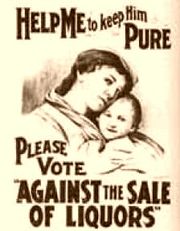 1906 – A strong prohibition movement began in Utah’s neighboring states.
1906 – A strong prohibition movement began in Utah’s neighboring states.
December 1907 – Reverend Dr. George W. Young of Lousville Kentucky, Assistant General Superintendent of the Anti-Saloon League of America, visited Utah.
1908 – Heber J. Grant became a trustee for Utah and an officer of the Utah organization of the Anti-Saloon League.
1909 – Reverend Dr. Louis S. Fuller, Superintendent of the Anti-Saloon League for Utah and Idaho, met many times with the First Presidency and the Twelve. Pressure built to support prohibition.
1911-1916 – These years were labeled the post-civil war apogee of alcohol consumption. A fierce battle to adopt prohibition began.
1915 – President Joseph F. Smith said that “young or middle-aged men who have had experience in the Church should not be ordained to the Priesthood nor recommended to the privileges of the House of the Lord unless they will abstain from the use of tobacco and intoxicating drinks” (The Word of Wisdom: From Principle to Requirement”, Dialogue: A Journal of Mormon Thought).
1917 – Newly-elected Democratic Governor Simon Bamberger and the democratically-controlled legislature enacted statewide Prohibition in 1917. (The Word of Wisdom: From Principle to Requirement”, Dialogue: A Journal of Mormon Thought).
1917 – Church magazines urged members to support anti-tobacco groups and their efforts to eradicate the use of tobacco. (The Word of Wisdom: From Principle to Requirement”, Dialogue: A Journal of Mormon Thought).
1917 – Frederick J. Pack of the University of Utah published an article in the Improvement Era dealing with Coca-Cola. The article discussed whether or not LDS members should drink Coca-Cola because it contained many of the “drugs” that were contained in coffee and tea. According to Frederick, the answer was no. (The Word of Wisdom: From Principle to Requirement”, Dialogue: A Journal of Mormon Thought page 7).
1919– Prohibition became law. All alcohol was banned in the United States of America.
1921 – Heber J. Grant pronounced abstinence from alcohol an absolute requirement for temple attendance. Was this a direct response to Prohibition? Our Articles of Faith would support this theory: “We believe in being subject to kings, presidents, rulers, and magistrates, in obeying, honoring, and sustaining the law.” (Article of Faith #12).
1922 – During Conference, Heber J. Grant stated, “I am not going to give any command, but I will ask it as a personal, individual favor to me, to let coca-cola alone. There are plenty of other things you can get at the soda fountains without drinking that which is injurious. The Lord does not want you to use any drug that creates an appetite for itself.”
1923 – The Improvement Era (a church publication) linked tobacco users with “evil person such as profaners, criminals, vagrants and prostitutes.” (The Word of Wisdom: From Principle to Requirement”, Dialogue: A Journal of Mormon Thought page 6).
Side Note: Mormon Myth – I have heard it said and taught the reason we do not drink tea is because it contains tannic acid. Tea does not contain tannic acid, but tannins which are also found in apple juice, grape juice and berry juices.
1924 – The Coca-Cola Company called President Grant to persuade him to stop the attacks on Coca-Cola. At first President Grant refused, stating that he had advised members to not drink Coca-Cola. A second meeting left the door open about drinking the cola.
1928 – For full fellowship in the Church, the Word of Wisdom must be obeyed. The General Handbook of Instructions, a manual to guide bishops and stake presidents on policies of the church, stated: “It is important that all those who may desire to enter the temple for endowments or other ordinances should be encouraged by the bishopric to observe the principle of tithing as well as all other Gospel principles.”
The next edition of the Handbook (published in 1933) stated that members desiring temple recommends “should observe the law of tithing. The applicant should also observe all other principles of the Gospel, should keep the Word of Wisdom, not use profanity, should not join nor be a member of any secret oath bound organization and should sustain without reservation the general and local authorities of the church.” (The Word of Wisdom: From Principle to Requirement”, Dialogue: A Journal of Mormon Thought page 5).
1930 – Heber J. Grant stated that tobacco use would prevent young men from being called on missions. (The Word of Wisdom: From Principle to Requirement”, Dialogue: A Journal of Mormon Thought page 6).
1933 – Utah repealed prohibition. “B.H. Roberts favored the repeal, and Anthony W. Ivins, first counselor in the First Presidency, questioned its usefulness. He pointed out that enforcement had cost more than one-half billion dollars by1931, with which, he thought, the country could have constructed 100,000 miles of paved road, or endowed 500 colleges with one million dollars each.” (The Word of Wisdom: From Principle to Requirement”, Dialogue: A Journal of Mormon Thought page 7).
1965 – President David O. McKay wrote a letter to a concerned home teacher about coffee, but in doing so seemed to identify, correctly or incorrectly, why coffee should not be drunk:
“You indicate that you are the home teacher of a sister residing in your ward who has a Word of Wisdom problem in that she drinks coffee. You state that you are trying to help this sister overcome this problem by the use of Sanka or Postum. As your letter is understood, you are desirous of knowing the attitude of the Church regarding the drinking of Sanka Coffee. I am directed to tell you that the drinking of a beverage made from the coffee bean, from which all caffeine and deleterious drugs have been removed, is not regarded as a violation of the Word of Wisdom.”
In General Conference, Sterling Sill stated one of the strongest and clearest stances I have found regarding caffeine:
“And one of the most damaging sins and one that gives greatest strength to our death instinct is the violation of that great revelation given 132 years ago called the Word of Wisdom. Some violators of this law tend to excuse themselves because it appears to be such a small thing. It seems like just a little disobedience, a little caffeine, a little nicotine, a little friendly indulgence in alcohol. Yet these are the springboards to disease, broken homes, immorality, disloyalty to God, physical death, and the death of many of our eternal interests.” (Sterling Sill, Conference Report, April 1965, p.88). Perhaps this is when the Mormon caffeine aversion began?
April 7, 1996 – On 60 Minutes Gordon B. Hinkley is asked about the Word of Wisdom.
Mike Wallace: No alcohol, no tobacco, no coffee, no tea, not even caffeinated soft drinks…
Gordon B. Hinckley: Right.
August 29, 2012 – An NBC special on Mormonism prompted the Church newsroom to release a statement regarding caffeine. If you didn’t see the special, a devout Mormon woman was asked whether or not she drank caffeine. She replied that she in fact did not; but then she mentioned one time when she did drink a Coke. She remembered that one time vividly because it was a big deal for her. When her husband was asked the same question (separately), he casually reported that he drank Diet Dr. Pepper once in a while. Nowhere in the Word of Wisdom does it say anything about caffeine, but yet in this primetime show, from these Mormon members, we got a mixed message on a non-issue. I believe this whole debacle is what prompted the Church newsroom to issue their statement:
“Despite what was reported, the Church does not prohibit the use of caffeine. The Church’s health guidelines, known in our scriptures as the Word of Wisdom (Doctrine and Covenants 89), prohibits alcoholic drinks, smoking or chewing of tobacco and hot drinks taught by Church leaders to refer specifically to tea and coffee. The restriction does not go beyond this.”
Hooray! We don’t have to sneak our Mountain Dew around since the Church officially does not prohibit the use of caffeine!
WAIT! HOLD UP! The very next day after the statement was issued, the newsroom came out with an adjusted statement:
Caffeine Table: (Caffeine in mg)
Brewed Coffee: 108mg /8 fl oz
Coffee (Decaf, Brewed) 6mg/ 8 fl oz
Coffee (Drip) 145mg / 8 fl oz
Coffee (Espresso 77mg / 1.5 fl oz
Coffee (Instant) 57mg / 8 fl oz
Lipton Brisk Green Tee 6mg / 12 fl oz
Lipton Iced Tea 50mg / 20 fl oz
Oregon Chai Tea 33mg / 4 fl oz
Tea Green 25mg / 8 fl oz
Tea (Brewed) 47mg / 8 fl oz
Yerba Mate Tea 85mg / 8 fl oz
A&W Cream Soda 29mg / 12 fl oz
Barq’s Root Beer 23mg / 12 fl oz
Coca Cola 46mg / 12 fl oz
Coke Zero 34 mg / 12 fl oz
Diet Coke 45 mg / 12 fl oz
Diet Dr. Pepper 41mg / 12 fl oz
Diet Mt. Dew 55mg / 12 fl oz
Diet Pepsi 36 mg / 12 fl oz
Dr. Pepper 41 mg / 12 fl oz
Dr. Pepper 10 51mg / 12 fl oz
Mt Dew 54 mg / 12 fl oz
Pepsi Max 69mg / 12 fl oz
Pepsi One 55mg / 12 fl oz
Pepsi 38 mg / 12 fl oz
5 Hour Energy 138mg / 2 fl oz
Rockstar 160mg / 16 fl oz
Rockstarx2 250mg / 12 fl oz
Red Bull 80mg / 8.46 fl oz
Monster Assault 160mg / 16 fl oz
Monster Import 184mg / 18.6 fl oz
Full Throttle Energy 144mg / 16 fl oz
“Despite what was reported, the Church revelation spelling out health practices (Doctrine and Covenants 89) does not mention the use of caffeine. The Church’s health guidelines prohibit alcoholic drinks, smoking or chewing of tobacco, and “hot drinks” — taught by Church leaders to refer specifically to tea and coffee.”
So we went from “the Church does not prohibit the use of caffeine” to “does not mention the use of caffeine” and excluding the sentence “The restriction does not go beyond this.” Are we splitting hairs here or what?
For the Sadducees and Pharisees, strict obedience of the law was a sign of worthiness. It became silly when Jesus healed a man on the Sabbath and instead of being in awe of the miracle, they questioned if he should heal on the Sabbath. They were so caught up in the rules of the Sabbath that they forgot the whole purpose of the Sabbath.
I’m personally reminded of the Pharisees and Sadducees when I think about our Mormon culture and the Word of Wisdom. Instead of having rules about how many steps we can take on Sunday, we need to be told what we can or can’t drink. It seems we are begging for rules so we don’t have to make decisions for ourselves. Under President Snow, some Apostles, like John Henry Smith, believed that the more important question was one of free agency and that those who continued to insist upon strict adherence to the Word of Wisdom were ignoring more serious principles. (The Word of Wisdom: From Principle to Requirement”, Dialogue: A Journal of Mormon Thought).
Just like the Pharisees and Sadducees, I believe we are missing the mark and have forgotten why we have the Word of Wisdom. I think it is safe to say that the Word of Wisdom is a law of health. I personally feel that if a person is healthy, it enables him/her to not only be happier, but more importantly, to serve and help others without being held back because of physical limitation. Let’s say I’m in the best physical shape of my life and I drink tea; I am now unworthy to enter the temple. But if I swapped out the tea (which has been shown to have many health benefits) with a Rockstar, Red Bull, or 5-hour Energy drink, I would be worthy to enter the temple. If I’m in poor physical health because of my choices to eat poorly, not exercise, etc.; but I don’t drink, smoke, or drink “hot drinks,” I’m still deemed worthy to enter in the temple. Does that seem backwards? Once the Word of Wisdom deems personal worthiness, I feel we run into issues. We run into issues because we want to be told what is and isn’t ok to eat or drink so that we can remain worthy according to a checklist, if you will.
What’s the difference between Mormons and non-Mormons? The temperature of their caffeine, of course.
I think God being concerned for our health is a good thing. I really like verse two of Section 89: “…not by commandment or constraint…” The suggestion is there to keep a healthy body. I believe we can do that and be our own judge of “moderation in all things.” Jana Reiss, author of Flunking Sainthood, said this regarding the church’s stance on caffeine:
I’m fine with the ambiguity because I support people having agency to make that decision for themselves. The Word of Wisdom was originally intended not as a litmus test of Mormon orthodoxy or even as a religious commandment (“not by commandment or constraint”) but as a health code that promised to improve people’s well-being should they choose to adhere to it. (Mormons and Caffeine)
Last but not least:
“Whatever weakens your reason, impairs the tenderness of your conscience, obscures your sight of God, takes from you your thirst for spiritual things or increases the authority of your body over your mind, then that thing to you is evil. By this test you may detect evil no matter how subtly or how plausibly temptation may be presented to you.” -Susanna Wesley
I would add whatever takes away your thirst to love more and/or to act selfishly, than that thing to you is evil. Whatever your interpretations of these guidelines are, may you find yourself in good health!

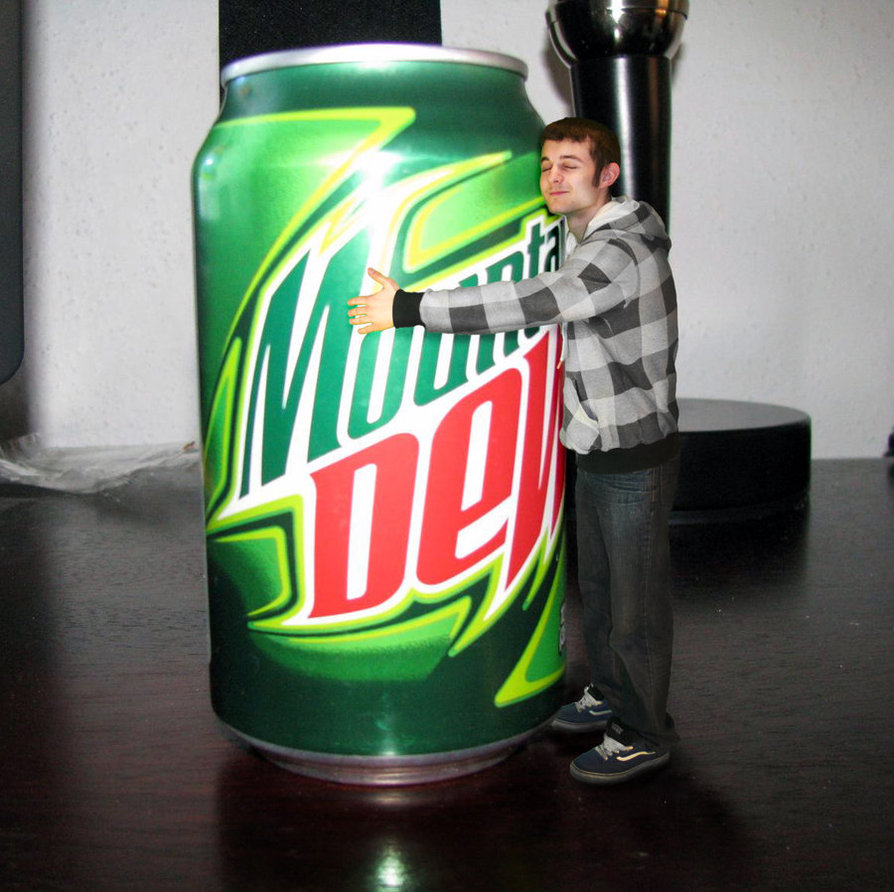

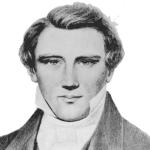
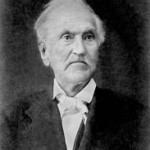
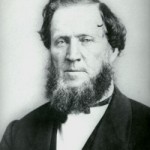
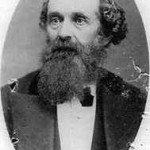
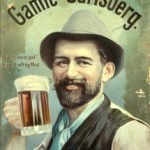
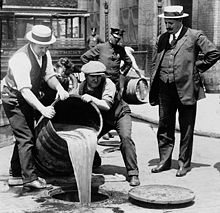
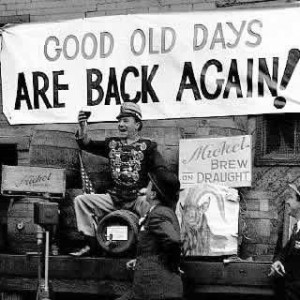
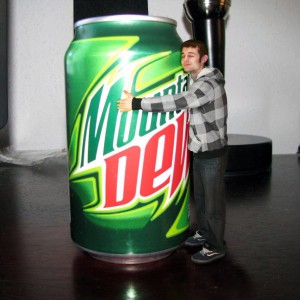



The same tannins that are found in tea and coffee are in a lot of vegetation. Where I live in the South the swamps and rivers are often “black” from the tannins (that’s why they’re called “black water”). I guess that means the gators and feral hogs couldn’t get a temple recommend with all that tannin they drink in the swamps.
That and the law of chastity…
Josh Hamilton Texas Ranger All Star side lined with blurry vision due to too much caffeine intake from energy drinks… watch out! Click here for the story
Paul Barker,
Once again an excellent post.
Thanks!
Paul,
You said the following:
“1836 – The church congregation voted for total abstinence from intoxicants after which water instead of wine was used in the Lord’s Supper. In my opinion, I think this was more of a vote to be frugal – to sacrifice excesses like wine and tobacco in order to make more funds available for building the kingdom. I am of this opinion because as you will see, no one obeyed the Word of Wisdom (at least not for many, many years). ”
I don’t think your conclusion logically follows the presuposition nor does the Leonard Arrington’s article support your opinion. The idea of keeping the money in Zion, was the opinion expressed by B. Young during the early Utah period. I see nothing in your argument nor in my readings to suppose that such an opinion was held during the Kirtland period of the church.
Second issue I have is your statement that prior to J. Smith’s murder that everyone “was liqoured up”. What historical evidence do you have that Joseph and crew were drunk? I agree with you that they all sat down and had some wine which was also shared with guards. But, to go beyond that is a little bit of ad-hoc history.
OK, now the positve. I loved the data you presented regarding Coca-Cola; absolutely awesome!!
I agree with you, in part, with your conclusion. I do find it problematic when one’s orthodoxy is judged based upon one’s orthopraxy. What we do in religious practice should be something that transforms us; the Gospel of Jesus Christ is about transformation. If a religious practice is failing to transform, then it is failing in its purpose. If it is used merely to judge, it is failing in its purpose.
To be frugal – yes there got my timeline mixed up.
Liquored up… too strong I agree.
I’ll do some edits with an astricks by it so the original content is still there.
Paul Barker,
How bout it was “Happy Hour.”
Brent,
Ya, until Joseph and Hyrum got the bullet to the face!
Definitely not a happy ending to happy hour.
Solid article. One of my favorite parts:
“Once the Word of Wisdom deems personal worthiness, I feel we run into issues. We run into issues because we want to be told what is and isn’t ok to eat or drink so that we can remain worthy according to a checklist, if you will.”
Since we all struggle with self-confidence at times, it is NICE to have someone tell us we’re good, that we’re obedient, that we’re righteous. I think people naturally gravitate towards a “checklist” rather than open interpretation of good guidelines – it is reassuring and simple.
I love this article and am looking forward to checkin’ out the rest. Thanks!
Thanks Jeff for stopping by! Yes checklist make it a lot easier to feel good about your choices.
PS – what do you use to host this website? Is it a wordpress-type set-up?
Yep wordpress!
Really enjoyed your posts, thanks!
One thing you could add to your timeline was when President Hinckley was asked on 60min if Mormons drink caffeinated soft drinks -answer is no
http://m.youtube.com/watch?v=pLFDP_MeYhg
I know!! Exactly, right? I remember thinking, “What the heck did he just say?” I always chocked it up to President Hinkley not wanting to get into that whole caffeine/ no caffeine thing with Michael Wallace.
I’ll add it on the timeline, one could blame old age on that one though. Wallace is listing off a bunch of stuff and at the pause he throws in “right”.
Until recently, I thought that Costco was the busiest place in Utah County on a Saturday afternoon. I stand corrected. I went to the liquor store to get some wine (to make some dinner) and there wasn’t enough parking! No, there wasn’t as much people as Costco, but per square foot of store, it was definitely busier.
Thanks, nicely done. I will use a lot of this in my seminary class.